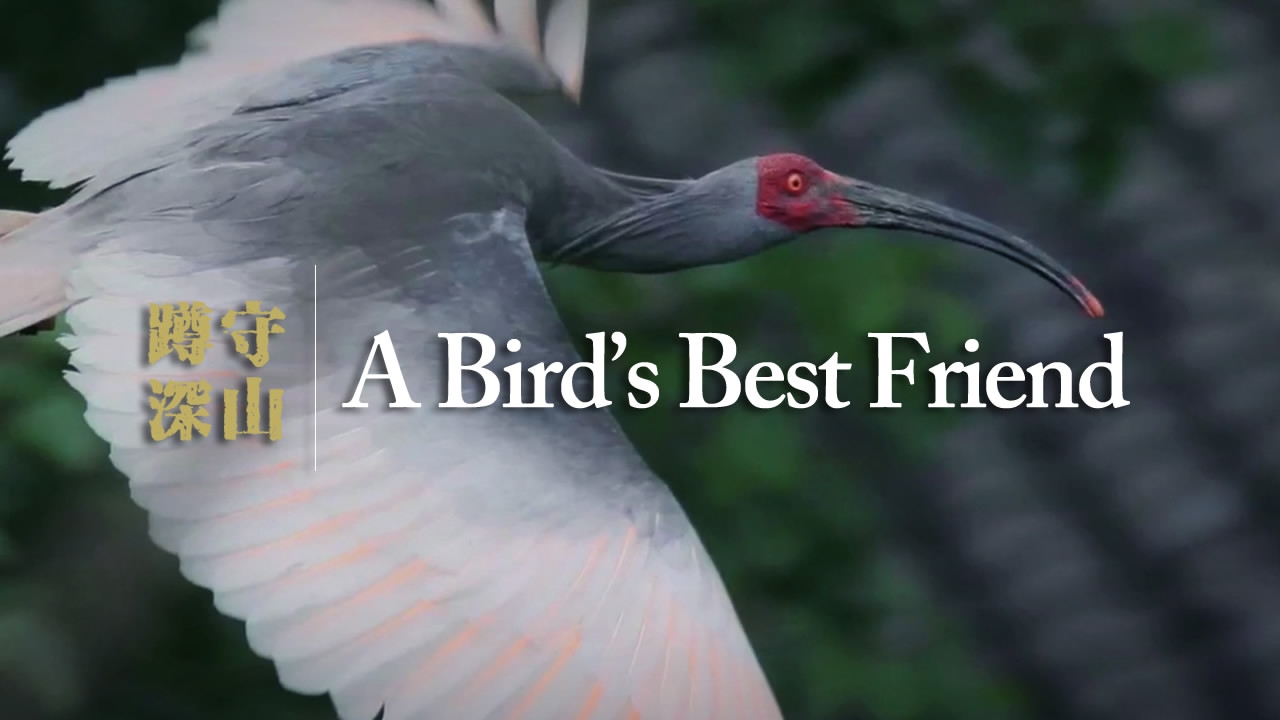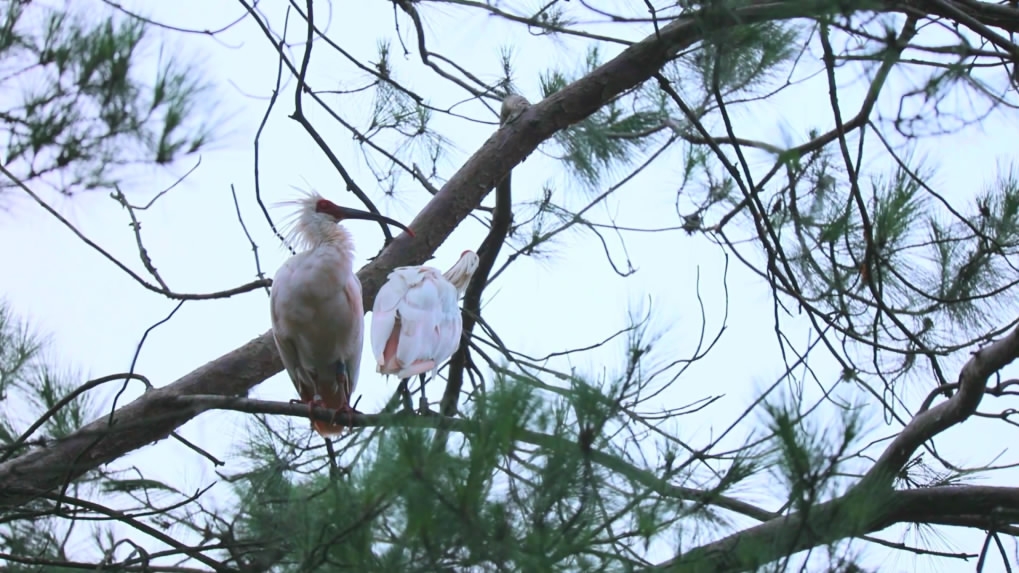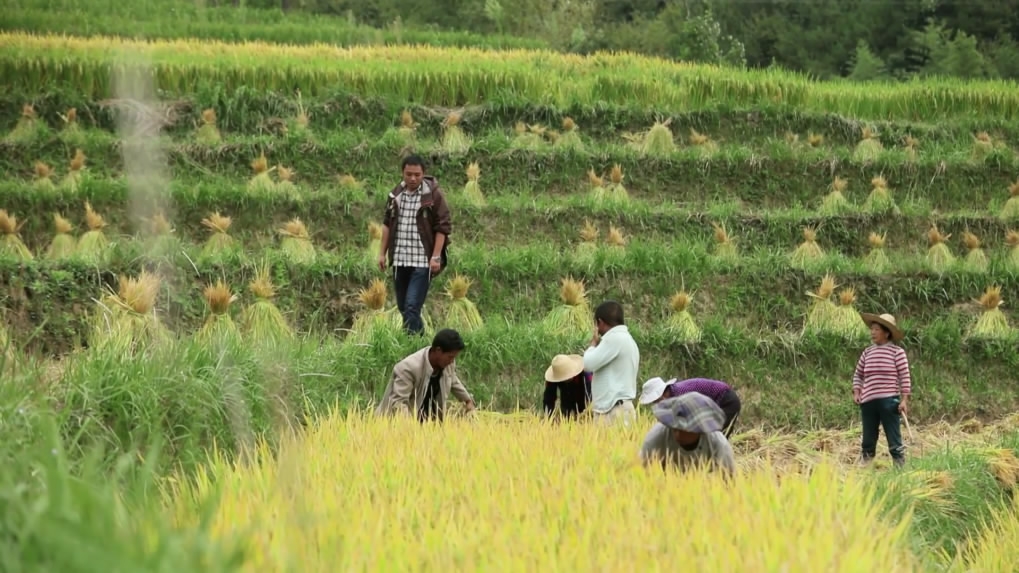
Culture
20:13, 12-Oct-2017
Bird man: Conservationist resurrects crested ibis population in NW China
CGTN


CGTN
CGTN
An endemic species in East Asia, the crested ibis was once widely spread throughout China, Japan, Russia and the Korean Peninsula. But after decades of environmental degradation, their habitats had been so badly damaged that it was estimated the seven crested ibises thought to exist in the wild in China in 1981 were the last of their kind anywhere in the world.

CGTN Photo
CGTN Photo
Though still endangered, the situation has significantly improved, thanks to conservationists like Li Xia.
For nearly 10 years, he has lived amid the mountains of Ningshan county, northwest China’s Shaanxi Province, running an artificial breeding program and encouraging farmers to protect the crested ibis, once seen by many locals as a pet to be kept in a cage.
"Crested ibises live in a particular environment. I hope to see them fly free, not be caged," Li said.

CGTN Photo
CGTN Photo
He looks after the birds with a carefully prepared diet. “For the artificial breeding, basically we feed them with worms in the morning and mudfish in the afternoon. If we fed them with just one kind of food, it could lead to malnutrition," Li explained.

CGTN Photo
CGTN Photo

CGTN Photo
CGTN Photo
In 2007, Li participated in what he says was the world’s first mass release of caged crested ibises.
Protecting them has become an integral part of his life. "The more you work with them, the more you're addicted to them," in his view. He sees crested ibises not only as his wards, but as his friends.

Scatter a special powder to prevent snakes tracing the birds' nests./ CGTN Photo
Scatter a special powder to prevent snakes tracing the birds' nests./ CGTN Photo
“Back in 2008, we found a nest with three fledglings in it, and a king rat snake was approaching up the tree,” he recalled. “I stood on a ladder, and a colleague climbed on my shoulders and poked the snake away with a stick. After that, the father ibis would always come to me.”

CGTN Photo
CGTN Photo
Li has also gradually shifted his focus to protecting the ibises’ living environment, including by cutting down on the agricultural chemicals that used to harm them when they ate the crops.
"The villagers were not happy with banning pesticide and fertilizer at first. But because of the crested ibis, more tourists are coming to buy their homegrown eggs, corn and vegetables. Therefore, everyone started to work on the protection of the birds," Li said.

CGTN Photo
CGTN Photo

CGTN Photo
CGTN Photo
Thanks to the effort of protectors like him, the number of wild crested ibises in Ningshan has passed 100. "As wild animals exist healthily and happily, humans will benefit,” according to Li.

CGTN Photo
CGTN Photo

The story is one in "The 1.3 Billion" series exploring the diverse lives that make up China.
The story is one in "The 1.3 Billion" series exploring the diverse lives that make up China.

SITEMAP
Copyright © 2018 CGTN. Beijing ICP prepared NO.16065310-3
Copyright © 2018 CGTN. Beijing ICP prepared NO.16065310-3